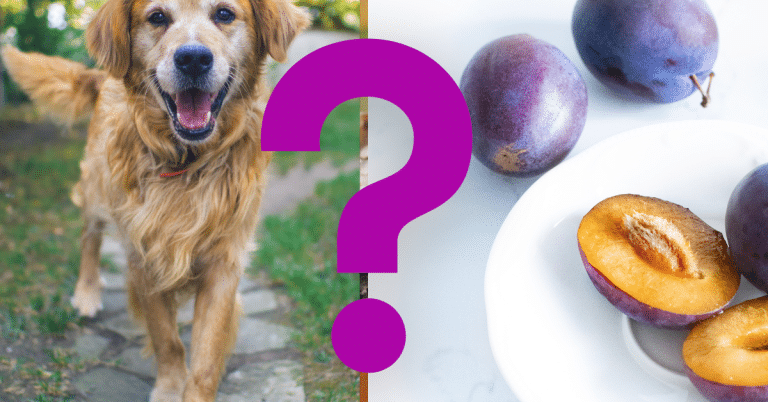Can Dogs Eat Hard Boiled Eggs? A Vet’s Opinion

Boiling eggs has been quite a popular way of eating eggs for centuries now. There are many different types of boiled eggs, such as hard-boiled eggs, soft-boiled eggs, and medium-boiled eggs. Hard-boiled eggs are those eggs that are boiled in the shell till the yolk, and the albumen – which is the white part – solidifies, but can you feed hard-boiled eggs to your dog?
Yes! Hard-boiled eggs are an excellent super food for your dog. This means that not only are they among the safest food options for your dog, but they are also some of the most nutritious foods you can give to your dog. Moreover, dogs tend to love the taste of eggs, so you can even use them as treats and make your dog’s training much easier!
Let’s dive in:
Benefits Of Hard-Boiled Eggs For Dogs
There are a lot of benefits to giving your dogs hard-boiled eggs. Hard-boiled eggs contain a lot of different nutrients and minerals. But more on that later! The dogs can eat the yolk, egg white, and even the egg shells. Each part of the egg offers tons of benefits for your canine friend. The fatty acids inside the yolk are essential for your dog’s health. These essential fatty acids are of two broad types, saturated and unsaturated. Both of which must be a part of your dog’s diet. Fatty acids have a vital role in building and repairing the body’s cells. The cells often break down frequently, and the fatty acids are needed to maintain the repair of the cell membrane to prevent that form from happening! Moreover, fatty acids are essential in helping your dog digest fat-soluble food items by giving them a medium to help them dissolve in.
Vitamins are another essential thing that your dog can take from these hard-boiled eggs. They act as catalysts in important metabolic chemical reactions and hence are the building blocks in their metabolism. They are essential for a more robust immune system and better growth and development of the body. Some of the vitamins and minerals include Vitamin A, Vitamin D, Vitamin E, Vitamin K, Vitamin B1, Vitamin B6, Vitamin B12, Riboflavin, Niacin, Folic Acid, and Choline. Egg whites are the most significant source of protein in the egg. The amino acids in these proteins are essential for protein synthesis and muscle building, among a plethora of other things. Some of the most important amino acids required for muscle synthesis in egg whites are Arginine, Histidine, Isoleucine, Leucine, Lysine, Methionine, Phenylalanine, Threonine Tryptophan, and Valine. Egg shells are also highly abundant in minerals, hence can be made a part of your dog’s diet. Some of the minerals include Calcium, Phosphorus, Magnesium, Sodium, Potassium, Chloride, Iron, Copper, Zinc, Manganese, Selenium, and Iodine.

How To Safely Give Hard Boiled Eggs To dogs
There are some things you should take care of when giving your dogs eggs to eat. You know the nutritional facts of eggs because letting your pooch munch on them. An average egg contains around 11 grams of proteins, 60 calories, and 4mg of fat. Your vet can help you decide the amount of protein that you should give to your dog. Some of the factors which are taken into account when determining portion size are the size, age, activity level, and current health issues of your dog.
Moreover, the safest way to give hard-boiled eggs to dogs is to first hard boil the eggs and chop them into small pieces. You can discard the shell or give it to your dog as well if you want to. The process of giving the shells as well to your requires you to finely crush them and make a powder out of them, ideally, so you can sprinkle them over the eggs. Giving your dogs the shells without crushing them can cause a choking hazard, and they are pretty sharp as well, hence could damage the esophagus of your canine. The best way to hard boil eggs is to make that you store them at 40 degrees Fahrenheit and boil them to 160 degrees Fahrenheit to boil them thoroughly hard and make sure that they are not runny.
Will Hard Boiled Eggs Make A Dog Sick?
No, hard-boiled eggs will not make your dogs sick in any way if you understand how portioning works. Excess of anything can be harmful. Hence it is not wise to give your dog ten whole eggs boiled every day. That would be an unhealthy amount of calories and fat, which would again have more health repercussions. Although it is rare for dogs to have protein allergies, make sure to notice any unusual symptoms after you give your dog eggs, and if these symptoms persist, it would be a wise decision to talk to your vet.
Hardly boiling an egg can remove major issues of feeding raw eggs for days. Dogs would most likely love to enter a hen coop and eat all the raw eggs without thinking twice, and that might not even affect them in most cases. However, they can contact germs and bacteria from a raw egg. Bacteria like Salmonella can poison your dog, and hence it could become a severe health risk. Moreover, you should make sure to give your dogs the yolk part of the egg as well. If you focus too much on the egg whites, your dog might develop biotin deficiency, which isn’t a good thing.

Vet’s Summary
Yes, your dog can undoubtedly eat hard-boiled eggs. Hard-boiled eggs are those eggs that are boiled in the shell till the yolk and the albumen – which is the white part – solidify. You should incorporate it into its meal. Hard-boiled eggs contain a lot of different nutrients and minerals. Every part of the egg has its importance, and the yolk has Fatty acids, which have a vital role in building and repairing the body’s cells. The yolks also contain nutrients and minerals like Vitamin A, Vitamin D, Vitamin E, Vitamin K, Vitamin B1, Vitamin B6, Vitamin B12, Riboflavin, Niacin, Folic Acid, and Choline. Moreover, egg whites have protein, which is essential for muscle synthesis. Some of the important amino acids found in egg whites are Arginine, Histidine, Isoleucine, Leucine, Lysine, Methionine, Phenylalanine, Threonine, Tryptophan, and Valine. Egg shells also contain their fair share of nutrients and minerals, including, Calcium, Phosphorus, Magnesium, Sodium, Potassium, Chloride, Iron, Copper, Zinc, Manganese, Selenium, and Iodine. You should hard boil the egg before giving it to your egg and avoid giving them raw eggs since raw eggs can cause infections from bacteria like Salmonella. Moreover, the eggshells must not be given as it is and must be finely crushed to avoid any blockage in the throat or any choking incidents. Probiotics are essentially healthy bacteria that are responsible for a healthy gut! You should add some probiotics to your dogs’ diet to help them stay clear of any gut problems or digestive issues they might face with age! Probiotics can also help fight digestive issues, such as diarrhea and constipation, and reduce the risk of infections. However, you should always consult your local veterinarian in deciding which supplements and probiotics will be beneficial for your pet friend!
Videos To Watch
If you are wondering what related foods are good to give your dog, watch this:
And if you want to know what a dog can NOT eat, watch this:






